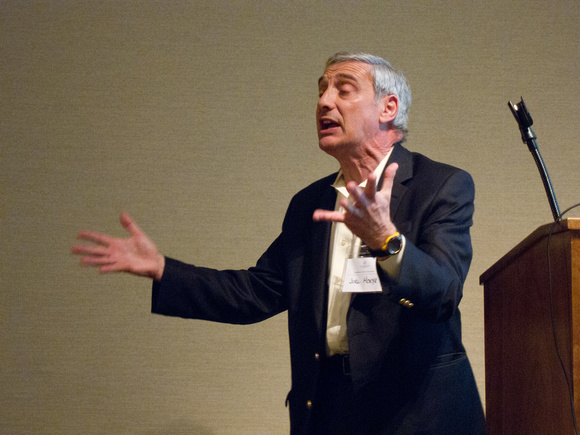Lynne Kiesling
Earlier this week on Twitter Tim Harford asked “Should economic students learn more econ history? … I learned none, feel poorer as a result.” Naturally, my immediate answer to that question was “Yes. Next question?” The cliché reason, avoiding the mistakes of the past, is only the first of the reasons to learn more economic history. Paraphrasing Deirdre McCloskey, economic history is a truly scientific discipline within economics — start with an interesting real-world puzzle or empirical question, combine attention to detail in gathering quantitative and qualitative data to understand the question and its context with well-grounded theory (both narrative and formal, but not “math for math’s sake”), and formulate your analysis of the real-world phenomenon that you are trying to understand. For that and several other reasons I’ve found that my background in economic history gives me a valuable context for analyzing modern electricity regulation.
I’ve been thinking about books I’d recommend to Tim to give him a general grounding in economic history, and the breadth and depth of the scholarship in economic history makes such a “short list” difficult. Most of the best economic history scholarship is focused on specific topics (technological change, political economy, banking, labor, education, industrial development, etc.). One great resource for folks like Tim who want to dip into economic history is the compendium of book reviews at EH.net, the website of the Economic History Association. The EH.net website also has a compendium of course syllabi that provide good resources for getting a broad, general grounding, usually from a geographic perspective (US, Britain, Europe, Latin America, Asia).
Among the works I’d recommend to Tim are, of course, the works of my thesis advisor and colleague Joel Mokyr, particularly Lever of Riches. Lever of Riches provides a wonderful introduction to the details of technological change and its relationship to economic growth, and an economic framework for analyzing and understanding that relationship. Working with Joel while he was working on Lever of Riches changed my world. His subsequent work on the role of useful knowledge, ideas, and values in shaping the ways that technological change contributes to economic growth has been an important contribution to our economic understanding and a true model of scholarship.
And I’m not alone; Joel has had over 30 graduate students who have gone on to make their own valuable contributions to economic history scholarship and teaching (and has 7 or 8 current graduate students between economics and history!). This week, we all gathered, along with some of Joel’s current and former colleagues and co-authors to celebrate Joel’s scholarship, ideas, mentoring, collegiality, and friendship. I was pleased and honored to help organize this festschrift conference, which included papers from several of Joel’s students, as well as Joel talking about one of his current projects (thanks to Mauricio Drelichman for the photo):
Joel Mokyr is a wonderful scholar, teacher, colleague and friend, and I am pleased that we have had this opportunity to celebrate those relationships.

Pingback: Contribution Our Knowledge
Lynne,
You said, “I’ve found that my background in economic history gives me a valuable context for analyzing modern electricity regulation.”
As another person who did his dissertation in Economic History, I couldn’t agree more.
Sorry to come so late to the post that few will see my comment.
I second Lynn’s recommendation of “Lever of Riches”. It was well written and extremely informative. Enjoying the understanding of complex systems and how they evolve, as I do, the book helped to strengthen my understanding of the interplay between technology, culture, and society. Five stars.
I submit a belated seconding of the views expressed at the conference honouring Joel Mokyr on June 21-22. Lynne Kiesling´s words warmed me as evidence that Joel has in his teaching most successfully measured up to the heritage of his predecessor in Economic History at Northwestern, JRT Hughes, under whom I received my “union card” in 1969 on a counterfactual diss assessing the impact of the transatlantic emigration on Sweden before WWI. I call to your attention that Joel was the editor of the THE VITAL ONE: ESSAYS IN HONOR OF JONATHAN R T HUGHES Research in economic History Supplement 6, 1991. We in Stockholm are looking forward to his visit as this year´s Heckscher lecturer on September 6 as a follow up of his contribution to the 2002 conference marking the fifth anniversary of Eli F Heckscher.
Rolf G H Henriksson
Contributor to the “VITAL ONE” as well as to the proceedings from the Heckscher conference published in 2006 by MIT Press; Ronald Findley, Rolf G H Henriksson, Hakan Lindgren and Mats Lundahl, editors, ELI HECKSCHER, INTERNATIONAL TRADE AND ECONOMIC HISTORY